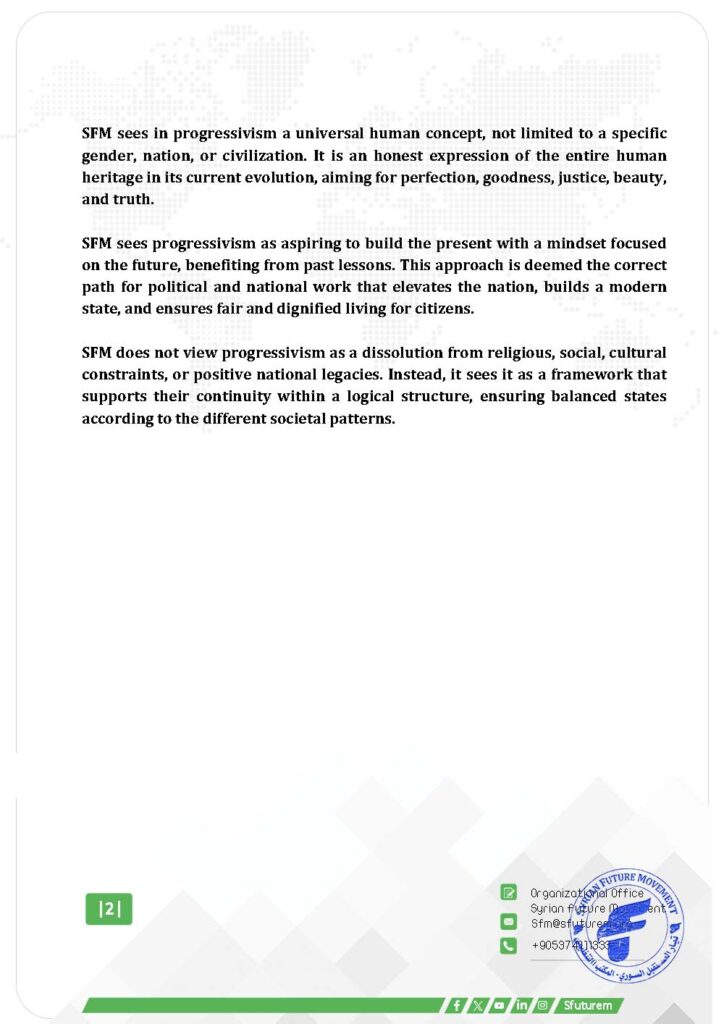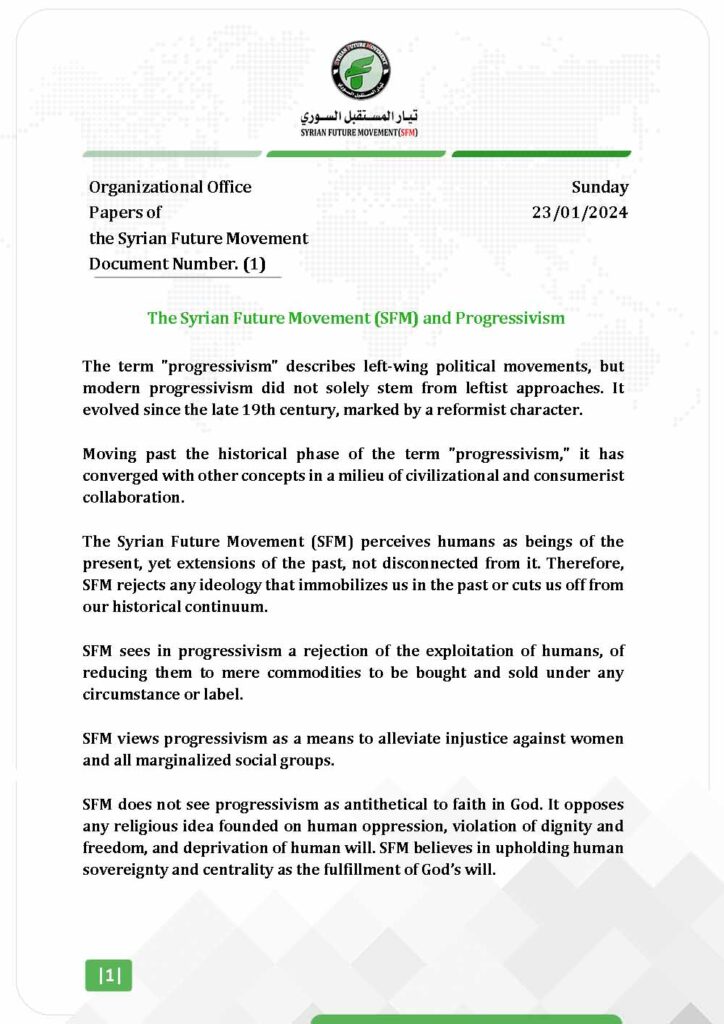The Syrian Future Movement (SFM) and Progressivism


The term “progressivism” describes left-wing political movements, but modern progressivism did not solely stem from leftist approaches. It evolved since the late 19th century, marked by a reformist character.
Moving past the historical phase of the term “progressivism,” it has converged with other concepts in a milieu of civilizational and consumerist collaboration.
The Syrian Future Movement (SFM) perceives humans as beings of the present, yet extensions of the past, not disconnected from it. Therefore, SFM rejects any ideology that immobilizes us in the past or cuts us off from our historical continuum.
SFM sees in progressivism a rejection of the exploitation of humans, of reducing them to mere commodities to be bought and sold under any circumstance or label.
SFM views progressivism as a means to alleviate injustice against women and all marginalized social groups.
SFM does not see progressivism as antithetical to faith in God. It opposes any religious idea founded on human oppression, violation of dignity and freedom, and deprivation of human will. SFM believes in upholding human sovereignty and centrality as the fulfillment of God’s will.
SFM sees in progressivism a universal human concept, not limited to a specific gender, nation, or civilization. It is an honest expression of the entire human heritage in its current evolution, aiming for perfection, goodness, justice, beauty, and truth.
SFM sees progressivism as aspiring to build the present with a mindset focused on the future, benefiting from past lessons. This approach is deemed the correct path for political and national work that elevates the nation, builds a modern state, and ensures fair and dignified living for citizens.
SFM does not view progressivism as a dissolution from religious, social, cultural constraints, or positive national legacies. Instead, it sees it as a framework that supports their continuity within a logical structure, ensuring balanced states according to the different societal patterns.






